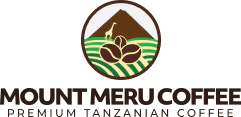A Look at Mt. Meru Coffee Project’s History

History
In 1998, a bishop from Tanzania visiting his counterpart in Milwaukee asked about creating a market for quality coffee from Meru. “We grow coffee; you drink coffee; would you buy your coffee from us?”
With an answer of “Yes”, the Mt. Meru Coffee Project was born. This has grown to become one element of the partnership between the Greater Milwaukee Synod of the ELCA and the Diocese of Meru of the ELCT.

The coffee farmers are located in the northwest part of the Diocese on the slopes of Mt. Meru. Tanzanian Arabica coffees are grown throughout Tanzania including in the volcanic soil under the shade of banana trees high on the slopes of Mount Meru. This is an excellent location to grow this premium east African coffee. Most family farms are less than 3 acres in area and grow primarily sustenance crops. Often, they grow coffee as their only cash crop. A few of these farms grow larger amounts of coffee and have as many as 1000 coffee trees.
The Mt. Meru Coffee Project is a member of the Fair Trade Federation and pays a higher than fair-trade price to the small coffee farmers for their premium coffee. The Project’s fair price provides an increase in farm income, allowing the farmers to support their families with dignity. It enables the farmers and the people of the Meru region to improve their standard of living and escape a cycle of poverty. More children are in school and more medical care is accessed because of the Mt Meru Coffee Project.

Tanzanian Farmers & Operation
As the project grew in Tanzania, a farmers’ association - Mt. Meru Specialty Coffee Growers Association (MMSCGA) – was established. This enabled the farmers to work together voluntarily to meet their common economic, social, and cultural needs through a jointly owned and democratically controlled enterprise. This Association has grown to 32 farmer groups, with approximately 1,000 farmers and six processing centers: (Makumira, Leguruki, Mulala, Silk, NIA and Mlimani). In 2023, these centers yielded roughly 40 tons of parchment coffee (processed cherries). The Mt. Meru Coffee Project is managed in Tanzania by two Project Coordinators who oversee the coffee processing activities in Tanzania.
The Association follows a fairly established method to harvest and process the coffee. The farmers pick the ripened cherries from the trees by hand over a 3-5 month time frame. The cherries ripen at different times, according to the altitude at which the trees grow. To maintain quality only the cherry coffee that is ready is picked each day. The ripe cherries are gathered together and transported to the nearest processing center, which typically employs seasonal workers, that are often members of farm families. There the cherries are run through a de-pulping machine where the skin and pulp are separated from the coffee beans (which still includes the parchment). The parchment coffee beans are then dumped into a holding tank for a number of days. After a number of days, the parchment coffee is washed and placed onto large screens where it is allowed to dry for a number of days. To maintain quality, the beans are monitored closely while drying and are turned when needed so as to dry at the correct rate.

Next, the parchment coffee is sent to a processing plant in Moshi where it is milled to remove the parchment. The beans are then cleaned, graded by size and shape, and bagged before being sold at auction. The coffee beans that are then ready for export.
Ongoing training of the farmers is an important aspect of membership in the Association. The Association arranges for its member farmers to attend training sessions provided by the Tanzania Coffee Research Institute (TaCRI) and sponsored by the Mt Meru Coffee Project. TaCRI provides a service to the thousands of farmers in the coffee industry by providing relevant technological advances and educating farmers on better farming practices in keeping up with continuous professional development and current coffee farming industry best practices.
Recent changes in Tanzanian government policy have caused some changes in how an Association can function. In order to comply with the recent legislation, the association is operating as the Mt. Meru Agricultural and Marketing Cooperative Society (MMAMCS). The impact on the individual farmers is expected to be minimal.
Milwaukee Operations
The Mt. Meru Coffee Project began selling coffee within the congregations of the Greater Milwaukee Synod (GMS) in 2002, with 50 congregations participating.
The grinding and order processing operations, staffed mainly by volunteers, and is done in the basement of an inner-city church. The storage and roasting process is currently handled by Imperial Coffee Roasters in Milwaukee. Mt. Meru Coffee is roasted, ground, and packaged in small batches to fill weekly orders.

The Coffee Project partners with the congregations in the Greater Milwaukee Synod through the role of the Mt. Meru Coffee “Ambassadors.” Ambassadors keep their congregations aware of the Coffee Project and sell the Premium Tanzanian Coffee items within their congregations. Mt Meru Coffee is also sold in congregations and other outlets throughout the country. The Project has also established a website and Facebook page to help everyone to stay up to date with the Project and to enable them to order and enjoy its premium coffee.
Sampling of Coffees available

Regular/Decaf

Peaberry

Flavored Coffee

Single Serve
